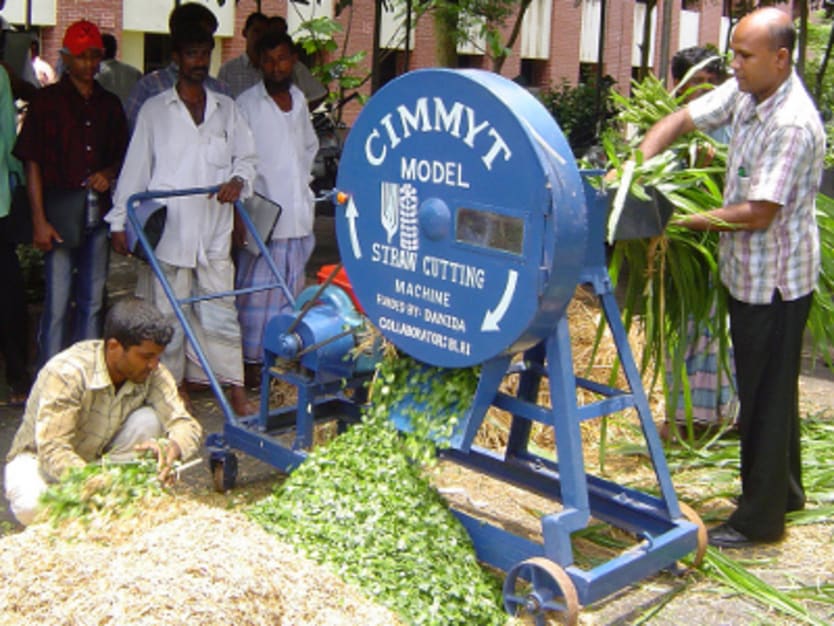
Competition has increased since Denmark decentralized development assistance, untied procurement contracting and cut spending on consultancy services. As a result, Danish consultants have had to find new clients, new locations or leave the scene entirely.
The Danish International Development Agency’s use of consultants has been cut in half since 2000. Mogens Strunge Larsen, chief consultant at Danida, stated in the Danida publication Udvikling in December 2007 that one reason is the transfer from project aid to wider sector program aid.
Another reason was the changing focus away from economic infrastructure. In addition to gender, HIV/AIDS and good governance, efforts related to climate change, energy and the environment, migration and stability are increasingly dominating the agenda.
Danish development assistance was untied in 2004, increasing the number of organizations eligible to pursue Danida contracts dramatically. All contracts over DKK 1 million (about $0.2 million) now must be up for international procurement. The Dutch firm Arcadis and London-based Adam Smith International are examples of non-Danish firms that have won significant Danida contracts.
Before 2002, no non-Danish firm won a longer-term consultancy contract. In 2006, 25 percent of Danida these contracts went to foreign consultants, according to the agency.
Danish consultancies had to find new clients, merge or accept defeat. Copenhagen Development Consulting, for instance, was on the top ten list of Danida’s contractors in 2002-03. In 2005, it merged with T&B Consult. Despite combining their forces, the firm went bankrupt in 2007.
Companies such as Grontmij Carl Bro, on the other hand, are trying to compensate fewer Danida contracts by engaging other donors. Others, such as COWI, another big Danish player, have found new clients in the Scandinavian, British and European Union donor agencies, which have also untied aid contracting.
International firms have been doing work for Danida as part of joint ventures with experienced Danish firms, said Lars Elle, Danida minister counsellor and deputy head of the Evaluation Secretariat, in an interview earlier this year. This does not require aid to be untied, he noted, but it is a way of untying contracting.
For instance, COWI worked together with Goss Gilroy Inc. and EPOS Health Consultants on a joint external evaluation of Tanzania’s health sector, published in October 2007.
Responding to aid decentralization
The administration of Danish development assistance was decentralized in 2003. This process transferred procurement activities to Danish missions abroad. Embassies now identify and formulate activities, but the appraisal phase is done at headquarters.
The 2005 Paris Declaration on Aid Effectiveness called on donors to base their assistance on developing countries’ own national strategies, institutions and procedures. Denmark has taken steps in that direction: Some 81 percent of Danish aid to Mozambique, for instance, followed local procurement procedures in 2007, up from 54 percent two years earlier.
Still, budget support represented only 4.4 percent of Danida’s bilateral aid in 2007. An internal Danida evaluation from June 2008 conveyed the expectation that sector-budget support will “increase markedly.” An increasing share of budget support would subject more funds to developing country procedures.
COWI, Grontmij Carl Bro, Ramboll, Niras and other larger consultancies have responded to the decentralization by adding offices in partner countries, Elle said. He noted that in fact, COWI is strengthening its presence in Africa in order to work as a local supplier when opportunities arise in partner countries.
One contractor’s approach to Danish aid
Sela Advisory Group, formed in 2007, is one Danish firm that is relying on contracts besides those with Danida and its Scandinavian counterparts. Sela principally consults smaller non-governmental organizations and private companies that do international development-oriented work.
Because it takes a lot of resources to engage Danida, Sela decided to focus elsewhere first, said Olga Ege, managing director and one of the company’s three co-founders.
Sela works with a growing network of consultants spread around the world in what the organization calls “virtual offices.” Only four people were fully employed earlier this year, illustrating Sela’s startup forcus on low-cost operations.
Sela’s founders don’t feel threatened by recent developments in Denmark. The market has developed, they say, and so must consultants and their businesses in terms of human resources policies as well as business structure.
Fast facts
Founded: 1972
Type: Donor
Headquarters: Copenhagen, Denmark
Total assistance: DKK 13.9 billion (US$2.9 billion, 2007)
Jobs: www.um.dk/da








